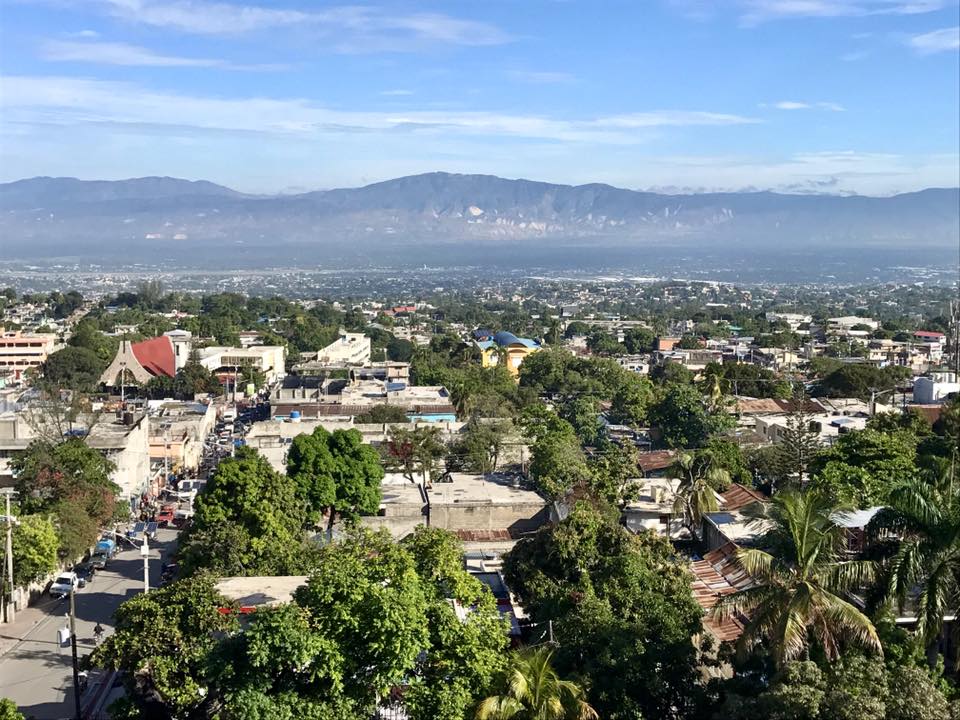
Jan 28, 2019
The global labor community is condemning death threats made against Jean Bonald Golinsky Fatal, president of the Confédération des Travailleurs- euses des Secteurs Public et Privé (CTSP) in Haiti.
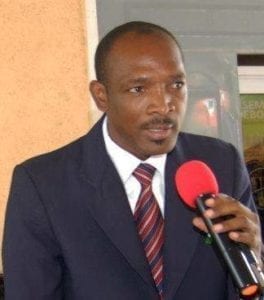
Garment union president Jean Bonald Golinsky Fatal is receiving death threats in Haiti. Photo courtesy Fatal
The Confederation of Trade Unions of Workers of the Americas (CSA) and the International Trade Union Confederation (ITUC) are calling on the international community to put pressure on the government to take action to find the perpetrators and bring them to justice.
Fatal’s name reportedly appeared on a list threatening five individuals, one of whom was murdered. Lionel Alain Dougé, executive director of the Tripartite Implementation Commission of the HOPE law, was killed in December at his home in Pétion-Ville, Haiti.
Dougé was responsible for ensuring textile companies adhere to Haitian laws, International Labor Organization labor standards and the HOPE law, which guarantees companies tariff advantages when trading with the United States and European Union.
The CSA and ITUC said in a statement that a joint trade union mission to Haiti in 2018 found rampant anti-unionism which translates into “campaigns of persecution and criminalization of trade union members and leaders.” At least 16 women were beaten by police inside a factory for refusing to return to work in May 2017, according to the ITUC 2018 Global Rights Index, which listed Haiti among countries that systematically violate worker rights.
The challenges to forming unions means workers have little opportunity to improve wages and working conditions. Haiti’s minimum wage is two to three times lower than the cost of living, with a liter of milk costing more than half the daily minimum wage. The resulting extreme poverty is exacerbated by increases in taxes and prices for gasoline, diesel and kerosene.
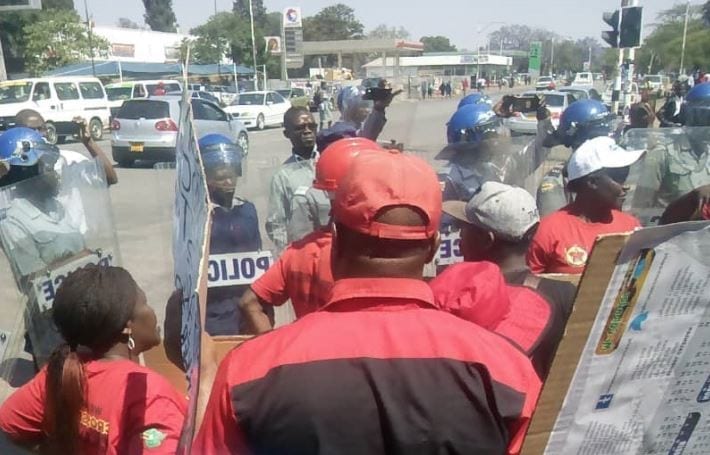
Jan 23, 2019
A government crackdown on citizens who last week protested a 150 percent fuel price hike escalated Monday with the arrest of Zimbabwe Congress of Trade Unions (ZCTU) Secretary General Japhet Moyo, charged with subversion for “mobilizing the nation to participate in anti-fuel hike protests.” Violent clashes blamed by human rights organizations on the army and police left 12 dead and 320 injured.
Prior to Moyo’s arrest, ZCTU President Peter Mutasa was forced into hiding by a police break-in at his home during which his brother was reportedly assaulted. Mutasa, who was away from his house during the break-in, remains in hiding this week, forcing ZCTU staff to avoid their offices for fear of police seeking his whereabouts, according to union members who spoke with the Solidarity Center.
“We call upon the government to respect labor rights and stop all forms of intimidation and harassment against trade unionists,” said ZCTU today in a press release.
The Zimbabwe Human Rights Commission found that torture of protesters by government forces—consisting mostly of “indiscriminate and severe beatings”—has been widespread. The situation remains tense this week, with soldiers patrolling the streets in most cities, towns and high-density residential areas.
ZCTU has faced other threats from authorities in recent months as Zimbabwe’s economy flounders and inflation and price hikes further complicate Zimbabwean workers’ lives. Mutasa and Moyo—along with 33 other trade unionists—were arrested and later released in October last year during an attempt to stop a national workers’ protest against a financial tax increase and rising prices. Some trade unionists were beaten, ZCTU Harare offices were cordoned off by some 150 police and ZCTU leaders not already in jail were forced into hiding.
The majority of Zimbabwean workers eke out a living in the informal economy, struggling to survive on less than $1 a day. Those with formal jobs often do not fare well either. A 2016 study by the Solidarity Center found that 80,000 workers in formal jobs did not receive wages or benefits on time, if at all. In many cases, they made only enough to get to work.
Update: On January 25, 2019, ZCTU President Peter Mutasa presented himself for arrest in the company of his lawyer Alec Muchadehama.

Jan 23, 2019
Tuesday, September 24, 2019 from 3:00 p.m. – 5:00 p.m.
The Murphy Institute, 25 W 43rd St., 18th Floor, New York, NY 10036
Agenda
2:30- 3:00 PM: Registration
3:00- 3:20 PM: Opening Remarks
- Gregory Mantsios, Dean of the CUNY School of Labor and Urban Studies
- Laine Romero-Alston, Team Manager, Fair Work Program/International Migration Initiative, Open Society Foundations
- Cathy Feingold, International Director, AFL-CIO and Deputy President, ITUC
3:20- 4:00 PM: Discussion I
Women Leading a Global Movement for Economic Justice, Democracy, Fair Work
- Moderator: Patrick Gaspard, President, Open Society Foundation
- Sharan Burrow, Secretary General, International Trade Union Confederation (ITUC)
- Rose Auma Omamo, General Secretary of Amalgamated Union of Kenya Metal Workers (Kenya)
- Liz Shuler, Secretary Treasurer, AFL CIO (United States)
4:00- 4:45 PM: Discussion II
Women Leading from the Frontlines of the Global Economy
- Moderator: Shawna Bader-Blau, Executive Director, Solidarity Center
- Anannya Bhattacharjee, International Coordinator, Asia Floor Wage Alliance (India)
- Libakiso Matlho, National Director, Women and Law South Africa (Lesotho)
- Maricarmen Molina, General Secretary, Confederación Sindical de Trabajadores y Trabajadoras de El Salvador (El Salvador)
4:45 PM – 5:00 PM: Concluding Reflections
- Amol Mehra, Managing Director, Freedom Fund
Sponsored by: Open Society Foundations, the Ford Foundation, the Freedom Fund, Fundación Avina, C&A Foundation, Humanity United and AFL-CIO, Solidarity Center and Global Labor Justice
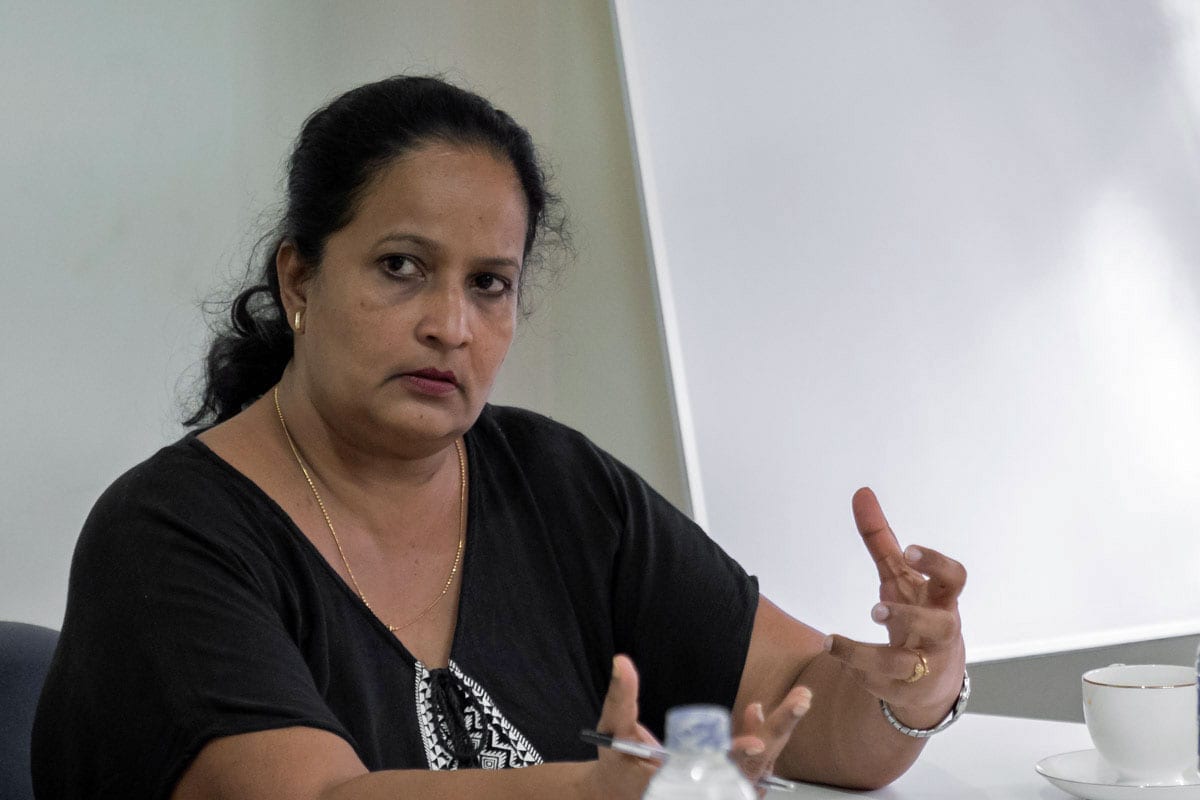
Jan 22, 2019
Just outside Sri Lanka’s Bandaranaike International Airport, where more than 2 million tourists start their vacations each year, a different reality unfolds in the Katunayake export processing zone (EPZ).
There, thousands of garment workers take their places in factories guarded by electrified fencing to begin long days for little pay, forced to endure grueling production cycles with managers refusing to grant even unpaid sick leave. Sexual harassment and other forms of gender-based violence are a daily part of the job, they say, often with economic repercussions.
“Women are made to stand and work and when engineers fix machines, they touch the women,” says PK Chamila Thushari, program coordinator for the Dabindu Collective union. “When they complain, engineers don’t fix the machines, which means they can’t meet their quota. The only they way they can earn a good living is to hit the targets set by the bonus,” she says, speaking through a translator.
Garment workers are paid a bare $84 a month—or less, if they are employed outside the EPZs—yet apparel exports generated $4.8 billion for Sri Lanka in 2017, a 3 percent increase compared with the previous year. At 47 percent of total exports in 2016, apparel and textiles are the backbone of the country’s trade.
Yet only 2.8 percent of the revenue comes to the garment workers who cut, sew and package clothes for international brands, says Thushari, and most are malnourished, suffer from anemia, and struggle to feed and educate their children. The cost of living for a family of four—without rent—is $549 a month in urban areas like Colombo, near the Katunayake EPZ.
Workers Fear Reporting Gender-Based Violence at Work
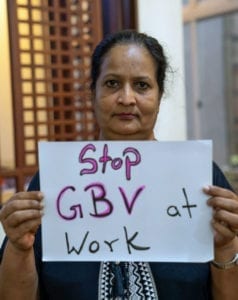
Gender-based violence in garment factories is so common “people have kind of become numb to it.” Credit: Solidarity Center/Sean Stephens
Dabindu (drops of sweat in Sinhalese), launched in 1984 as a local organization to advocate and promote women workers’ rights, transitioned to become a union last year at the request of its members, says Thushari, who has been with the organization for 22 years. In addition to advocating for improved wages, the union is focused on educating women about their rights to a workplace free of gender-based violence.
As is the case at workplaces around the world, Dabindu has found one of the biggest hurdles to addressing sexual harassment and other forms of gender-based violence is women’s fear of reporting it.
Also, “because this happens so often in garment factories, people have kind of become numb to it,” says Thushari. Dabindu creates awareness programs and trains workers to become leaders on the issue. Because workers are fearful of speaking to employers or the police about abusive incidents, the worker-leaders share their experiences with the union, which takes the information to factory management, multinational brands and others so they may address the problem.
Importantly, it took time for Dabindu to develop trust among the workers so they would feel comfortable sharing their experiences with the union, says Thushari.
Connecting Garment Workers Across the Country
Since the end of the country’s 26-year civil war in 2009, which claimed roughly 100,000 lives, Tamil women, many widowed, have journeyed from the north for employment in garment factories at Katunayake and other southern areas with Sinhala majorities. Many experience difficulties because they do not understand the language, and garment factories often require Tamil women to meet higher targets, says Thushari.
Dabindu is working to foster better understanding between the Sinhala and Tamil garment workers by holding daylong “youth camps,” bringing the women together in a relaxed setting, and also is sponsoring trips for garment workers to war-torn northern Sri Lanka to enable women see the difficult living conditions there that are driving Tamil women to seek employment far from their homes. The union is expanding its program to offer women in the north a chance to travel to the south.
“Sometimes, workers are in tears when they see the difficult living conditions, and that brings them closer to each other,” says Thushari.
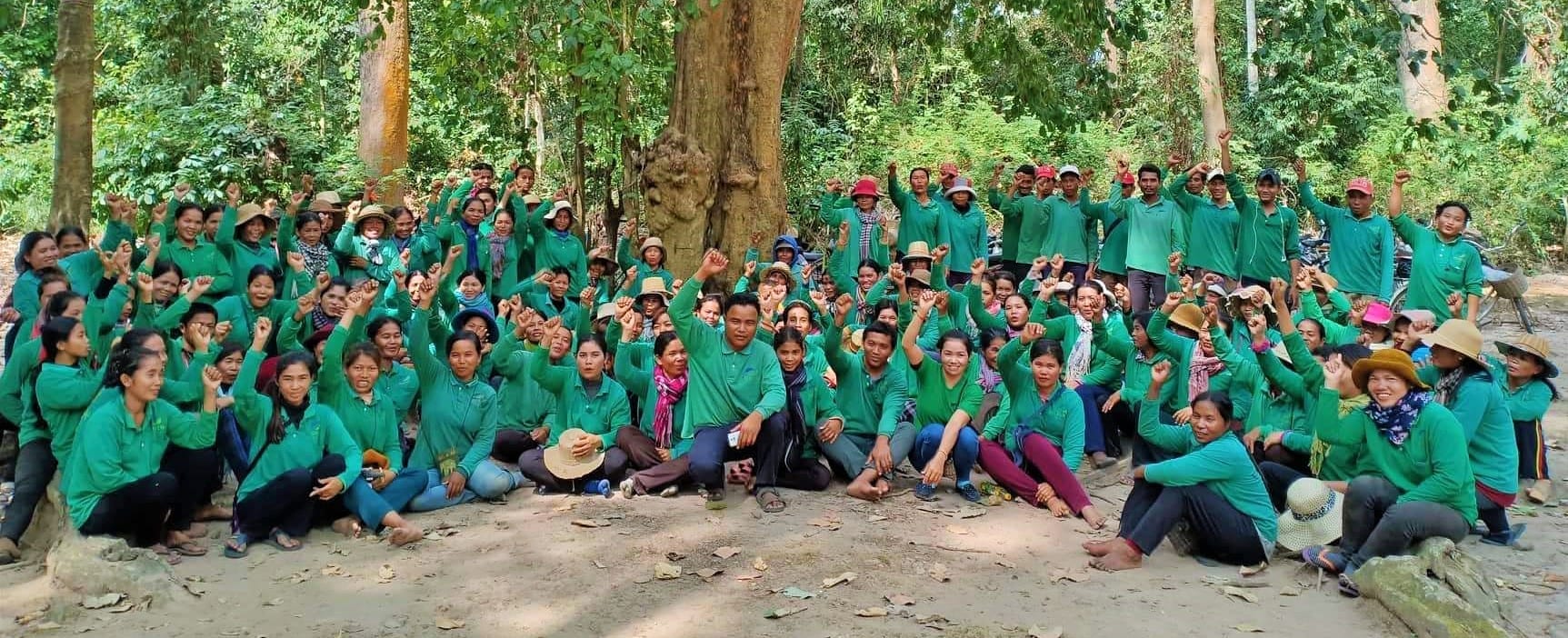
Jan 18, 2019
At Cambodia’s iconic Angkor Archaeological Park in Siem Reap, trash collectors employed by the contractor V-Green are back on the job with a boost in pay this week after 200 workers waged weeks-long lunchtime protests for better wages, safer working conditions and improved social protections like health care.
The company agreed to increase monthly wages by $15 in 2019 and $20 in 2020, which means “workers with the lowest wage could earn up to $120 [per month] next year,” local union president Tea Tuot told the Phnom Penh Post. The workers, most of whom are women, also will get a $25 per month pay boost if the agency governing the park renews the company’s contract in 2020, and additional increases in the following two years.
Tea, who says the company reassigned him to a worksite far from the union members, was returned to his previous position as part of the agreement.
After workers formed the Tourism Employees Union V-Green Co. (TEUVGC) in June 2018, they successfully pushed for a monthly wage increase from $71 to $80 and some social protections through the national social security system, including access to the national health care program and worker compensation benefits.
But further talks stalled late last year, and workers say the company began to retaliate against union activists, including Tea. The company has agreed to not impede union activity or retaliate against workers involved in the union.
Throughout the workers’ efforts to achieve justice on the job, the Solidarity Center provided the union, an affiliate of the Cambodian Tourism and Service Worker Federation (CTSWF), with legal and bargaining support.
Workers Don’t Share in Cambodia’s Booming Tourism Industry
Cambodia’s tourism sector earned $3.63 billion in revenue in 2017, an increase of 13.3 percent over the previous year. Yet workers collecting trash throughout the more than 400-acre site are not provided with protective gloves and face masks, exposing them to safety and health hazards like broken glass and hazardous chemicals. They also have little job security and were not paid overtime on Sundays and holidays as required by law.
In recent years, construction and restoration workers at the Siem Reap complexes also have sought to improve their poverty wages and highly dangerous working conditions, but like many workers in Cambodia, they face big hurdles when they seek to form unions and improve their working conditions, including retaliation, violence and even imprisonment, according to the International Trade Union Confederation (ITUC).
Cambodian workers have waged few strikes in recent years since passage of a 2016 labor law that significantly limits workers’ freedom to form unions and exercise their rights to collective bargaining and free assembly, and workers celebrating their victory at V-Green hope their victory bolsters’ similar workers’ struggles around the country.







